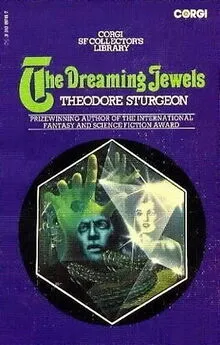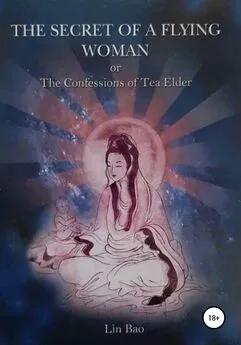Kim ManChoong - The Cloud Dream of the Nine
- Название:The Cloud Dream of the Nine
- Автор:
- Жанр:
- Издательство:неизвестно
- Год:неизвестен
- ISBN:нет данных
- Рейтинг:
- Избранное:Добавить в избранное
-
Отзывы:
-
Ваша оценка:
Kim ManChoong - The Cloud Dream of the Nine краткое содержание
The Cloud Dream of the Nine - читать онлайн бесплатно полную версию (весь текст целиком)
Интервал:
Закладка:
The Master raised his hands, said his regretful good-bye and was gone. He had scarcely passed beyond the shadowed circle of the grove when he looked back, but there was only the green of the mountains that seemed piled one upon the other till they touched the white clouds in companies. He realised then that he had had a dream of the Lake of Gems and thus he came back home.
But his mind was all confused and his heart had lost its joy. He sat alone thinking to himself: “Even though the fairy did tell me that the time had come for her return from exile, how could she tell the very moment, or that it was to-day? If I had only waited a little or hidden myself in some secluded corner and seen the fairies and their meeting, I would have come back home in triumph. Why did I make this fatal blunder and come away so quickly?” So he expressed his regrets over and over as he failed to sleep the night through. With these vain thoughts upon him he greeted the dawn, arose, took his servant, and went once more to where he had met the fairy. The plum blossoms seemed to mock him and the passing stream to babble in confusion. Nothing greeted him but an empty pavilion. All the fragrance of the place had vanished. The Master leaned over the deserted railing, looked up in sadness, and sighed as he gazed at the grey clouds, saying: “Fairy maiden, you have ridden away on yonder cloud and are in audience before Heaven's high King. Now, however, that the very shadow of the fairy has vanished what's the use of sighing?”
So he came down from the pavilion. Standing by the peach tree where first he met her he said to himself: “These flowers will know my depths of sorrow.”
When the evening shadows began to lengthen he returned home.
Some days later Thirteen came to Master Yang and said “The other day on account of my wife's illness we failed in our outing together. My regret over that disappointment is still with me, and now though the plums and the peaches are past and the long stretch of the willows is in bloom, let us take half a day away, you and I, to see the butterflies dance and hear the orioles sing.”
Master Yang answered: “The green sward with the willows is prettier even than the flowers.”
So the two went together outside the gates of the city across the wide plain to the green wood. They sat upon the grass and made counting points of flowers to reckon up the drinks they had taken. Just above them was an old grave on an elevated ridge. Artemisia weeds grew over it, the fresh sod had fallen away, and there were bunches of spear grass and other green tufts mixed together, while a few weakly-looking flowers strove for life.
Master Yang, awakened from the dejection caused by the wine he had drunk, pointed to the grave, saying: “The good and the good-for-nothing, the honourable and the mean, in a hundred years will all have turned to heaped up mounds of clay. This was the regret of Prince Maing-sang long, long ago. Shall we not drink and be merry while we may?”
Thirteen replied: “Brother, you evidently don't know whose grave this is. This is the grave of Chang-yo, who died unmarried. Her beauty was the praise and admiration of all the world in which she lived, and so she was called Chang Yo-wha, the Beautiful Flower. She died at the age of about twenty and was buried here. Later generations took pity on her and planted these willows to comfort her sorrowful soul and to mark the place. Supposing we, too, pour out a glass by way of oblation to her lovely spirit?”
The young Master, being by nature kind-hearted, readily said in reply: “Good brother, your words are most becoming.” So they went together to the front of the grave and there poured out the glass of wine. Each likewise wrote a verse to comfort her in her loneliness.
The Master's words ran thus:
"The beauty of your form o'erturned the State,
Your radiant soul has mounted high to Heaven;
The forest birds have learned the music of your way,
The flowers have donned the silken robes you wore.
Upon your grave the green of springtime rests,
The smoke hangs o'er the long deserted height,
The old songs from the streams that bore you hence,
When shall we hear them sung?”
The scholar Thirteen's words ran thus:
"I ask where was the beautiful land,
And of whose house were you the joy,
Now all is waste and desolate,
With death and silence everywhere.
The grass takes on the tints of spring,
The fragrance of the past rests with the flowers,
We call the sweet soul but she does not come,
Only the flocks of crows now come and go.”
They read over together what they had written and again poured out an offering. Thirteen then walked round the back of the grave, when unexpectedly in an opening where the sod had fallen away, he found a piece of white silk on which something was written. He read it over, saying: “What busybody, I wonder, wrote this, and placed it on Chang-yo's grave?”
Master Yang asked for it, and lo! it was the piece he had torn from his sleeve on which was the verse he had written for the fairy. He was astounded at it, and greatly alarmed, saying to himself: “The beautiful woman whom I met the other day is evidently Chang-yo's spirit.” Perspiration broke out on his back and his hair stood on end. He could scarcely control himself, and then again he tried to dismiss his fears by saying: “Her beauty is so perfect, her love so real. Fairies too have their divinely appointed mates; devils and disembodied spirits have theirs, I suppose. What difference is there, I wonder, between a fairy and a disembodied spirit?”
Thirteen at that moment arose, and while he turned away the Master took advantage of the occasion to pour out another glass of spirit before the grave, saying as a prayer: “Though the living and the dead are separated the one from the other, there is no division in love; I pray that your beautiful spirit will accept of my devotion and condescend to visit me again this night so that we can renew the love that was broken off.”
When he had done so he returned home with his friend Thirteen, and that night he waited all alone in the park pavilion chamber. He leaned upon his pillow and thought with unspeakable longing of the beautiful vision.
The light of the moon shone through the screen and the shadows of the trees crossed the window casements. All was quiet till a faint sound was heard, and later gentle footsteps were audible. The Master opened the door and looked, and there was the fairy whom he had met on Cha-gak Peak. Delighted in heart, he sprang over the threshold, took her white soft hands in his, and tried to lead her into the room, but she declined, saying: “The Master knows now my place of dwelling, and does he not dislike me for it? I wanted to tell you everything when we first met, but I was afraid I would frighten you, and so I made believe that I was a fairy. Your love is so dear that my soul has a second time returned to me, and my decaying bones are again clothed with flesh. To-day also your lordship came to my grave and poured out a libation and offered me condolences written in verse. Thus have you comforted my soul that never had a master. I cannot sufficiently express my thanks when I think of what you have done, and so have come to-night to say my word of gratitude. How dare I again have my dead body touch the form of my lord?”
But the Master took her gently by the arm and said: “A man is a fool who is afraid of spirits. If a man dies he becomes a spirit, and if a spirit lives it becomes a man. A man who fears a spirit is an idiot; and a spirit who runs away from a living man is a foolish spirit. They all come from one and the same source. Why should we make a difference or divide the living from the dead? My thought is thus, and my love is thus. Why do you resist me?”
The maiden replied: “How could I ever resist your kindness or refuse your love? But you love me because of my dark eyebrows and red cheeks, and these are not true, only make-believe. They are all part of a great trick to get into touch with one who is living. If the Master really wishes to know my face, it is but a few bones with the green ivy creeping through its openings. How can your lordship ever wish to come into contact with anything so unclean?”
The Buddha says: “A man's body is but froth on the water, or a gust of wind, all a make-believe,” he said. “Who can say that it is anything, or who can say that it is nothing at all?” So he led her into the room.
Later as they sat talking, “Let's meet every night,” said he, “and let nothing keep us apart.”
The maiden replied: “Dead spirits and living people are different, and yet love can bind even these together.”
He loved her from the depths of his heart, and apparently his love was reciprocated. When the sound of the morning bells was heard she disappeared among the flowers. He remained leaning over the arm-rest as he saw her go. “Let's meet again to-night” was his farewell greeting, but she said nothing in reply and was gone.
Chapter VIIt is Cloudlet
AFTER meeting with the fairy, Yang no longer kept company with his friends nor received guests. He lived quite by himself in the park pavilion and gave his thoughts to this one thing only. When night came he waited for her footsteps, and while day dragged on its way he waited again for the night. He hoped to persuade her to more frequent visits, but she refused to come often. Thus his mind became more and more consumed with thoughts of her.
Some time later two persons came to visit him by the side entrance of the park. He noticed that the one in front was his friend Thirteen, while the other was a stranger whom he saw for the first time. Thirteen presented the stranger to Master Yang. “This is Professor Too Chin-in,” said he, “from the Temple of the Absolute. He is as well versed in physiognomy and fortune-telling as were the ancients. He would like to read your Excellency's face, for which purpose he has come at great effort.”
Yang received him with open-handed welcome. “I have heard your honourable name for a long time,” said he, “but we have never met before. Our coming thus face to face is beyond my highest hopes and expectations. Have you ever read our friend Thirteen's fortune? What do you think of it, pray?”
Thirteen replied for himself, saying: “The professor read my face and greatly praised it. 'Within three years,' said he, 'you will pass the examination and become a magistrate of the Eight Districts.' This satisfies me and I know it will come to pass. Brother Yang, you try once and have him read yours.”
“A good man,” said Yang, “never asks about the blessings he has in store, but only of the troubles that await him, and now you must tell me the whole truth.”
After Professor Too had examined him for a long time, he said: “Your eyebrows are different from those of anyone I have ever seen. You have almond eyes that are set slantwise across the cheek-bones. They indicate that you are to rise to the rank of a minister of state. Your complexion is as though powdered with rouge, and your face is round like a gem. Your name will assuredly be known far and wide. Across your temples and over your face are indications of great power. Your name, as a military officer, will encompass the Four Seas. You will be made a peer when three thousand miles away, and no blemish will ever tarnish your fair name. One danger only I see, a strange and undreamed of one. If you had not met me I am afraid you might have come to an untimely end.”
“A man's good luck,” said Yang, “or evil fortune all pertain to himself if they pertain to anything. Sickness I accept as something that I cannot of myself escape. Are there any signs that I am to fall seriously ill?”
Читать дальшеИнтервал:
Закладка:










